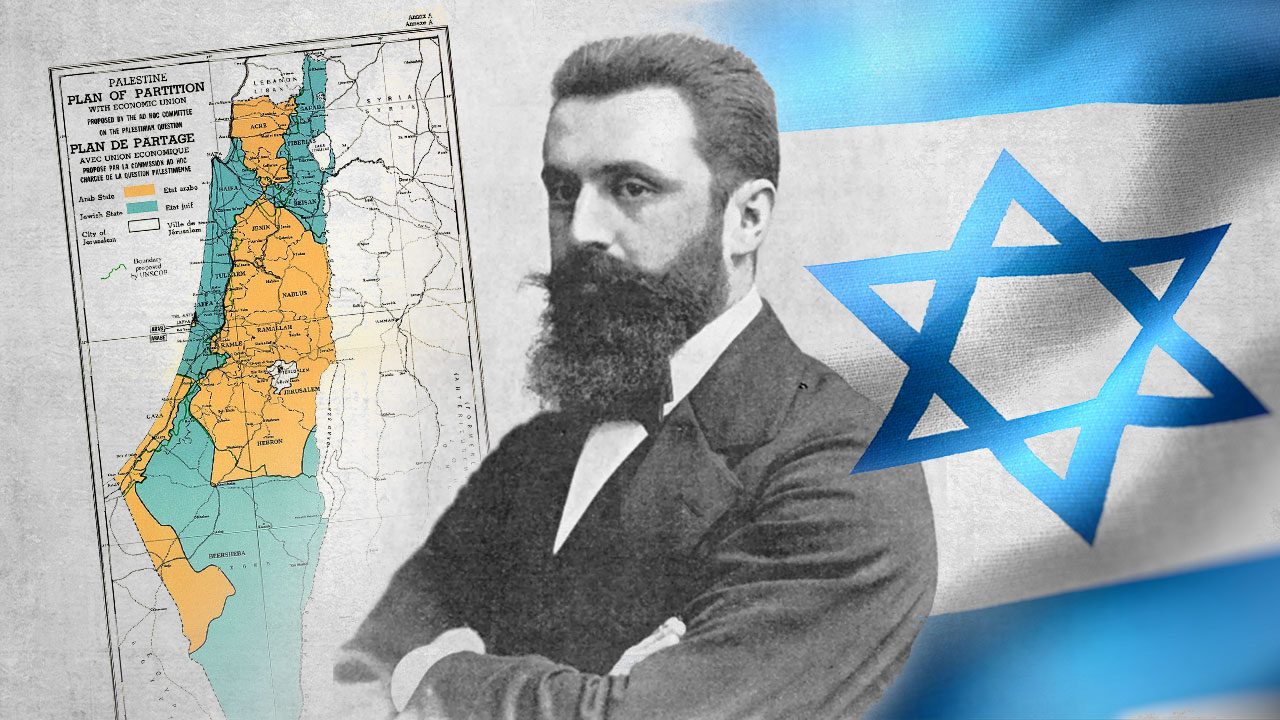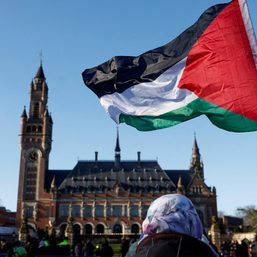SUMMARY
This is AI generated summarization, which may have errors. For context, always refer to the full article.

MANILA, Philippines – The Israel-Palestine conflict has deep historical roots in the Zionist movement, which sought to establish a Jewish homeland in Palestine.
In the beginning of the 20th century, the rise in Jewish immigration to Palestine led to heightened tensions with the local Arab population that grew increasingly apprehensive about the expanding Jewish presence.
This wave of migration and subsequent occupation of Palestine, combined with clashing nationalist and religious aspirations, significantly contributed to the conflict that has only worsened through the years.
But to truly understand the foundations of this issue, it is essential to delve deeper into the ideology of Zionism, the driving force behind the formation of modern-day Israel and its occupation of Palestine.
History of Zionism
Zionism finds its roots in the Hebrew word “Zion,” which represents a prominent hill in Jerusalem, symbolizing the broader concept of the Land of Israel.
While the core principles of the Zionist movement have historical roots spanning centuries, modern Zionism gained formal recognition in the late 19th century in Central and Eastern Europe. It emerged as a movement for national revival, in response to the rising tide of antisemitism in Europe and in parallel with the Jewish intellectual movement, known as Haskalah.
Zionism was formalized as a political organization in 1897 under the leadership of Theodor Herzl, an Austrian-Jewish journalist and political activist. Often referred to as the father of modern Zionism, Herzl articulated the idea that the Jewish community’s survival depended on having a nation of their own.
The central goal of Zionism was the establishment of a Jewish nation in the area of Palestine – their “ever-memorable historic home,” according to Herzl in his 1896 pamphlet, The Jewish State.
The Zionist Movement saw this as a means to bring Jews back to what they deemed their historic homeland, ending the cycle of exile and persecution that had marked Jewish history.
The Balfour Declaration
For a long time, the Arab population, both Muslim and Christian, constituted the majority of inhabitants of Palestine, which was once under Ottoman rule. Following the Ottoman Empire’s defeat in World War I, the League of Nations entrusted Britain with the mandate to govern Palestine.
In 1917, then-British foreign secretary Arthur James Balfour wrote a letter to Baron Rothschild, a prominent leader in the British Jewish community, expressing the British government’s support for creating a Jewish homeland in Palestine. This letter, known as the “Balfour Declaration,” was published in the press a week later.
The Balfour Declaration’s content was included in the Mandate for Palestine, a document issued by the League of Nations in 1923. This mandate gave Great Britain the responsibility to help establish a Jewish national homeland in the part of Palestine under British control.
However, its implications ignited tensions. This clash of commitments would become a central issue in the years that followed.
United Nations partition plan
After World War II, thousands of Jewish displaced persons attempted to enter Palestine illegally. British authorities interned a significant number of them in detention camps in Cyprus.
It is against this backdrop that the newly-formed United Nations (UN) took up the issue of Palestine in 1947, aiming to address the brewing tensions and conflicts in the region.
The UN proposed the partition of Palestine into separate Jewish and Arab states, along with an international administration for Jerusalem, through UN Resolution 181, commonly known as the UN Partition Plan.
The UN Partition Plan marked a significant turning point for Zionism. It provided international legitimacy to the establishment of a Jewish state, which was realized when the State of Israel was declared in 1948.
David Ben-Gurion, a staunch Zionist from his youth, declared the establishment of the State of Israel and served as its first prime minister.
After Israel was established in May 1948, many Jewish refugees arrived in the new country. Around 140,000 Holocaust survivors settled in Israel in the next few years.
Criticism of Zionism, conflict continues
Having fulfilled its central goal, Zionism evolved into an ideology to advance and safeguard the interests of Israel amid resulting conflicts that persist to this day.
Right after Israel’s declaration of statehood, Arab nations like Egypt, Jordan, Syria, Iraq, and Lebanon launched an invasion of Israel to contest the UN partition plan, resulting in what is known as the 1948 Arab-Israeli War.
Israel prevailed, and in the aftermath, numerous Palestinians were forcibly displaced, stripped of their homes and lands, ultimately becoming refugees. In the Arab world, this has been known as the “Nakba” or catastrophe, involving the depopulation and destruction of entire Palestinian communities.
Numerous conflicts followed in the succeeding decades, leading to tremendous loss of life and suffering, especially among Palestinian communities. From 2012 to September 2023, prior to the Hamas-Israel conflict that erupted last October 7, at least 6,407 Palestinians and 308 Israelis were killed, according to the United Nations Office for the Coordination of Humanitarian Affairs.
Amid the current conflict, Gaza’s Health Ministry said Palestinian casualties in the Hamas-Israel conflict have exceeded 8,000, the majority of them women and minors, as reported by Al Jazeera.
In the course of this conflict, many Palestinians were also forced to flee their homes, either voluntarily or involuntarily. Many Palestinian refugees and their descendants still live in refugee camps in neighboring countries, awaiting a resolution to their status and the right to return to their ancestral homes.
The occupation and partition of Palestine set the stage for one of the most enduring and complex conflicts in the world, with its roots tracing back to the Zionist movement’s aspiration for a Jewish homeland in the region. – Rappler.com
1 comment
How does this make you feel?












![[PANOORIN] Ano ba ang hugot ng Israel-Hamas war?](https://www.rappler.com/tachyon/2023/11/israel-hamas-war-ls.jpg?resize=257%2C257&crop=360px%2C0px%2C1080px%2C1080px)



Thanks to Jezreel Ines for this informative article about Zionism. The Israel-Palestine conflict is indeed “one of the most enduring and complex conflicts in the world.” In addition, Zionism has evolved into “an ideology to advance and safeguard the interests of Israel amid resulting conflicts that persist to this day.” Meanwhile, Palestinians are not going to surrender their interests, either. Hence, there is no end in sight for the Israel-Palestine conflict.